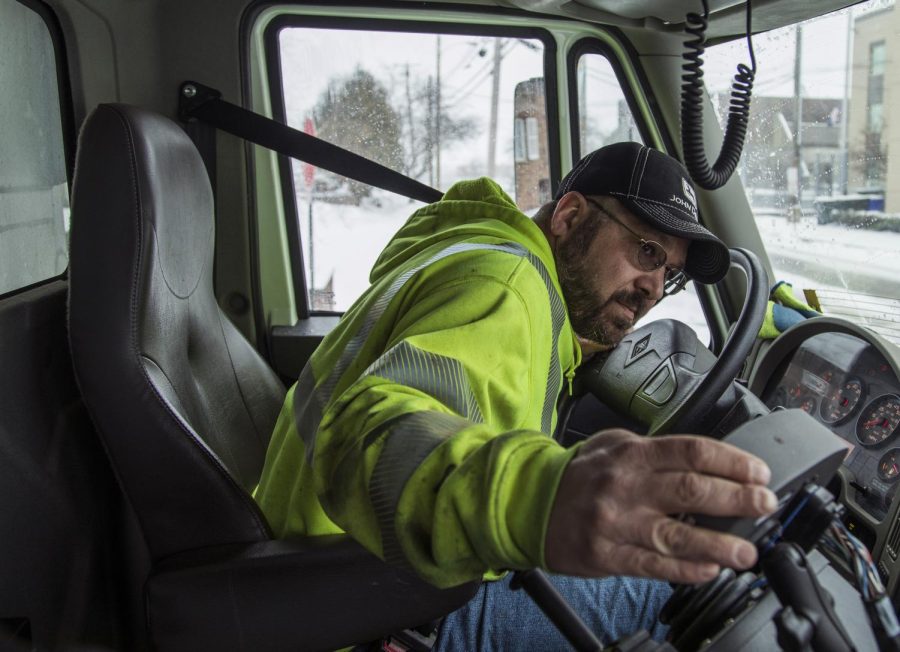Plowing through the storm
January 21, 2019
When Winter Storm Harper made landfall in Portage County and people took to their homes for warmth and safety, Jeff Derthick, a 46-year-old snow plow operator and Ravenna city worker, started his shift. He pulled out of the Ohio Department of Transportation depot and onto Oakwood Avenue, the first of dozens of roads that Derthick plowed, salted, re-plowed and salted again during his 12-hour shift.
“You know, for me, I don’t take many breaks,” Derthick said. “If I’m working for 12 hours, I’m spending most of the time in the truck for the 12 hours.”
Though operating a 13-ton truck with eight tons of rock salt and a 30-foot piece of hydraulically controlled curved steel has its own host of challenges as is, a few more are added when plowing within the city.
Narrow roads; vehicles parked on the street; balancing between clearing primary, secondary and neighborhood roads; and dealing with high volumes of drivers creates a unique situation for plow operators.
Derthick remained within the city limits during his shift, clearing the roads of wards one and three, while Dave, a fellow driver working the same shift, handled wards two and four.
“We usually just split the two between us, either taking odd or even,” Derthick said. “I don’t really care which, neither does he, so today I’m handling odds.”
As his shift went on, Derthick remarked on the importance of remaining calm to get his job done correctly and safely.
“It’s about being patient,” Derthick said. “(Other drivers) have to be patient with us, we have to be patient with them and we have to be patient with the equipment.”
Patience with the equipment became critical due to a sensor beeping loudly and warning of a possible malfunction as he drove down East Main Street, causing Derthick to return to the depot to switch out trucks. An ongoing issue with the older vehicles is a misconnection between wires and sensors, meaning the sensors could go off when an issue isn’t actually happening. The truck, an older model used as a dump truck over the past few months, received a careful visual inspection from Derthick before he made his way to the salt bay.
At the depot, drivers weigh their own vehicles before and after the beds are filled with rock salt, load their own salt and then return to the roads for another round of plowing.
Having a hydraulic lift bed in the older truck meant that salt spills were more of a probability, leading to more stops, more checks and more work.
Between clearing streets, Derthick hit the parking brake, hung out of the door to check that the salt wasn’t spilling out of the truck bed and within seconds was back in his seat, fastening his safety belt and putting the truck in gear.
This was the rhythm for the next hour: plowing, salting, hopping out to check for spillage and plowing again.
Waiting for him at the depot was some reprieve from the grind of the storm. His wife had brought him lunch, which she placed in his truck for when he got a moment’s rest.
After his 12-hour shift, Derthick goes off the clock for about eight hours — a chance to rest, see his family and get ready for the next 12 hours of clearing the streets of Ravenna.
Carter Eugene Adams is a photographer. Contact him at [email protected].

























